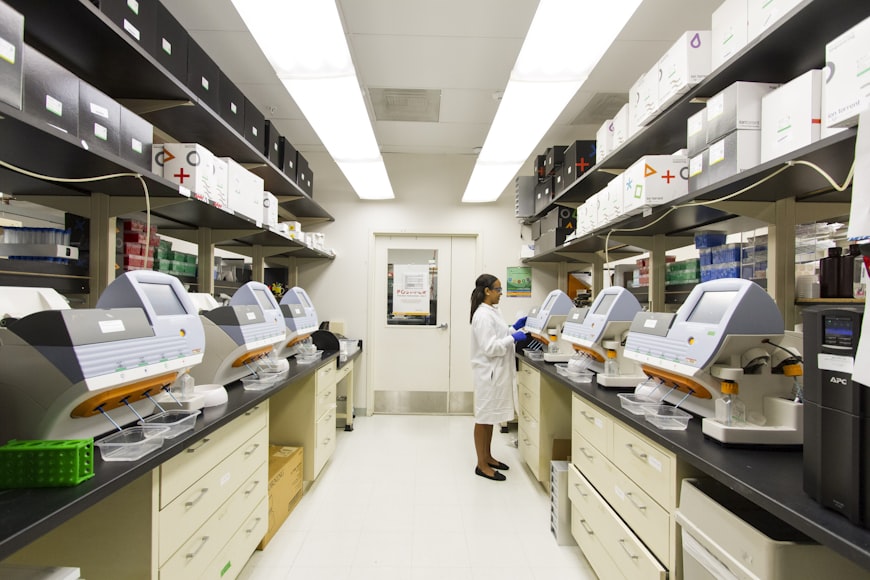Pathology is a specialty within the medical field that gives diagnostic information to both patients and other physicians. Like other types of physicians, your role as a pathologist is important to the field of medicine because you study how viruses, parasites, fungi, bacteria, and other infections and diseases affect the human body.
There are also many subspecialties of pathology, which means that there are many different types of settings where you can find employment. Here’s a look at four settings where you can find work as a pathologist.
Contents
1. College And University Settings
Many pathologists (and other types of physicians) can find work in an academic setting, such as a college or university. This will give you the opportunity to teach medical school students wanting to specialize in pathology, in addition to doing research in pathology. Choosing this route means that you’re not likely to work directly with patients, but you’ll still be able to help them through research and the training of upcoming pathologists.
2. Group And Private Practices
Pathologists can find employment in a group practice, which is a practice that is owned by two or more physicians inside or outside of the same specialty of medicine. Because diseases can affect any part of the body, pathologists can work with many different types of physicians within their practice. Some examples of other physicians that pathologists may work with include:
- Neurologists
- Immunologists
- Hematologists
- Gynecologists
- Dermatologists
Oncology is one of the most common examples since its focus is cancer— one of the most detrimental illnesses. Oncologists treat cancer, while pathologists diagnose and study cancer. Both are heavily involved in the care and treatment of cancer patients, although oncologists interact more with patients and pathologists spend more time in the lab doing research.
A private practice is a clinical setting that is run by one physician, and as a pathologist, you can choose to open your own practice. Due to the nature of the job, however, it will probably be more closely related to a laboratory setting, rather than a primary care physician’s office.
3. Hospitals
One of the most common places that employ pathologists is hospitals and other medical centers. It is in this type of setting where you’re most likely to work directly with patients, although pathologists don’t spend as much time with patients as other types of physicians.
Even if you’re qualified to practice within a subspecialty of pathology, you still may be able to find employment in a hospital setting.
a). Blood Banking And Transfusion
This subspecialty of pathology includes monitoring and processing blood products. Blood banking is the process of making sure that donated blood is safe for use (which is usually done in a lab setting), whereas transfusions are almost always done in hospital settings.
b). Pediatric Pathology
Pediatric pathology is a specific subspecialty of pathology that studies diseases and illnesses in children, or more specifically, from prenatal development through adolescence. When working with children in any subspecialty of medicine, you’re most likely to find employment in a children’s hospital or pediatrician’s office.
4. Laboratories
Finally, laboratories are the most common clinical settings where pathologists can find work. Pathology requires a lot of research and testing to better understand diseases and illnesses that occur in the human body.
Although you’re not working directly with patients in this type of setting, you’re still helping to find treatments and even cures for certain ailments. Pathologists in almost all subspecialties can find work in a lab setting.
a). Chemical Pathology
Chemical pathology is the subspecialty that focuses on organic and inorganic substances in bodily fluids. This also includes toxicology, which is the nature, detection, and effect of poisons on the human body.
b). Forensic Pathology
Forensic pathology is almost always done in a lab setting, as it is the study of people who have died suddenly/unexpectedly and violently. These pathologists are also called in to view crime scenes and even to perform autopsies.
c). Medical Microbiology
This subspecialty of pathology studies infectious organisms and antibiotic susceptibilities. It begins with studying the human immune system and how the body naturally responds to invasive microorganisms.
Conclusion
As you can see, pathologists can find work in academic, clinical, and laboratory settings, although a lab setting is the most common workplace. Hospitals and other inpatient facilities are also common workplaces for pathologists.
However, your subspecialty can be a huge factor in determining where you can find employment as a pathologist. The good news is that your knowledge in the field may allow you to transition into other subspecialties.





